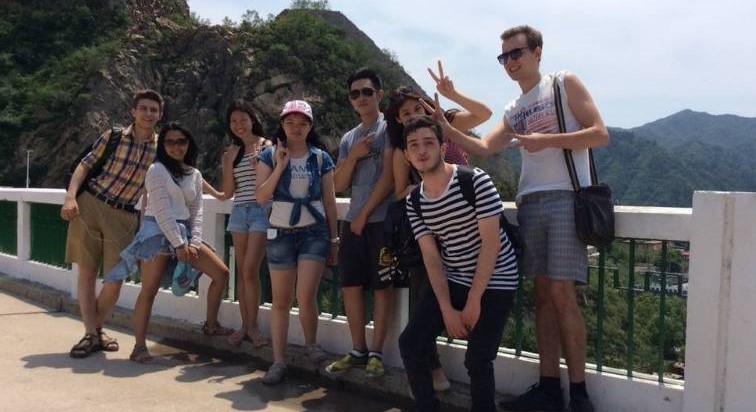My name is Ilkin, I am from Georgia. I had lived in Beijing for seven years and I left China only this summer. I would like to share how the city has changed in front of my eyes.
Beijing is a huge, crowded city with usually polluted air. Don’t worry, the air pollution is getting better though. Five years ago, half of the winter, the city streets would be filled with faceless faces (people with masks). I would joke with my friends that even a chemical attack wouldn’t present a threat to the population. Last year, however, Beijing has had a great improvement as only 10% of the winter days had seen faceless faces.
Some of the old streets as well have been demolished, especially the ones that were closer to the city center. Although, it cannot be said that people are happy with this change. The famous Bar Street (酒吧街), for example, was among those streets that were renovated, but it seems like it has sucked the liveliness out of the street. The other streets that have been affected were the “skewers and beer” streets, which were extremely popular during the summer and, to be fair, were far from the food hygiene standards. So, you are probably thinking now that it’s good that they don’t exist anymore, but we, the old Beijing foreigners think that Beijing is getting boring year after year and all these sudden changes take the authenticity away from our good old city.

As for the construction, I must admit by the time I had arrived in Beijing it was already a well-constructed city. Public transportation exceeded my expectation and the traffic wasn’t and still isn’t that bad for the size of the city. Did you know that the population in Beijing reaches 30 million? Crazy right! Catching a taxi, however, was a nightmare up until Uber followed by DiDi (滴滴打车) took over the market. Before Didi came to the market, I remember I have waited 2 hours for a cab in Sanlitun (Bar Street area).
Anyways, today most daily operations in Beijing have been digitalized and have become extremely convenient already. In 2012, I would only use cash to pay for the cab, shopping, restaurants, etc. However, nowadays starting from paying communal fees up to government service fees can be paid cashless just with FaceID or fingerprint scan through APPs on your phone called WeChat (微信) or Alipay (支付宝). The only trouble that you have to go through is to connect your online wallets to your Chinese bank account and you are good to go! Even street beggars have adapted as they walk around with QR codes, now dare you say you don’t have cash on you.
There are many more changes that Beijing has been through in the past few years and many articles talk about such. I bet you have already heard about online shopping platforms such as Taobao (淘宝), JingDong(京东), TMall (天猫), or catering and food delivery APPs like Meituan (美团), Baidu Waimai (百度外卖), Eleme (饿了么), etc. If you haven’t, just google it and you’ll find tons of articles. All these new tools make your life in Beijing so convenient that when you return home, you feel like you are back in the past.
Beijing is an incredible city and it never stops transforming into something even better. Just live it by yourself and you’ll understand me. I am thankful to Beijing for all these cultural experiences, digital and technological advancements that inspired me with new ideas, friendships for a lifetime and a bright future.
Written by: Ilkin Bakhtiarov
Alumni of University of International Business and Economics (UIBE)
- I Have Submitted My Application to China Admissions, NOW WHAT? - December 7, 2021
- 10 Things to Consider while Signing an Employment Contract in China - September 15, 2021
- List of 279 Chinese Universities For CSC Scholarship - June 14, 2020

